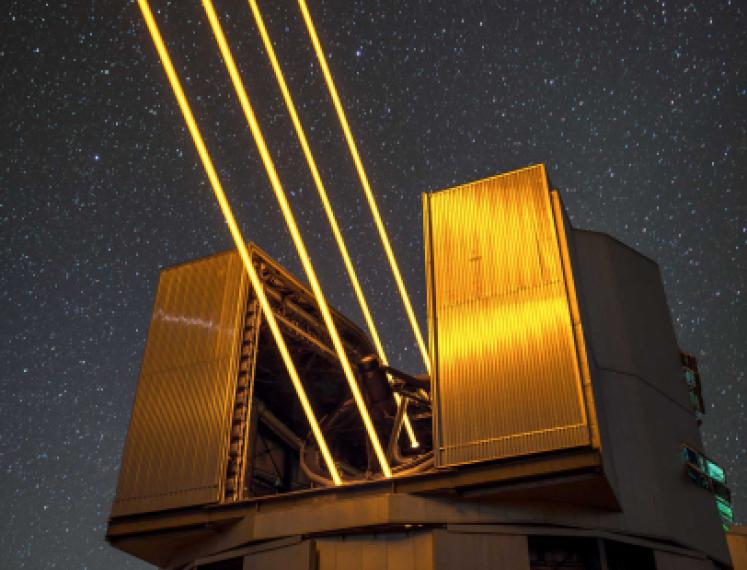
Academy Building
Broerstraat 5
Groningen
Netherlands
The World’s Most Advanced Eyes on the Sky
Today’s telescopes allow studies of the Universe from its earliest stages to the present-day, and provide firm evidence for planets orbiting other stars. They may -- in the future -- reveal the existence of life on other worlds. Such exciting discoveries are made possible thanks to key technological advances and to strong international cooperation. In his Blaauw lecture, Professor Tim de Zeeuw will address the longstanding link between technology and astronomy, the role of international cooperation, and the achievements of ESO’s Very Large Telescope, the Hubble and Gaia space telescopes, and will briefly look forward to ESO’s future Extremely Large Telescope with its 39 diameter main mirror.
Tim de Zeeuw is professor of theoretical astronomy in Leiden and also holds a visiting professorship at the Max Planck Institute for Extraterrestrial Physics. He was Director General of ESO (the European Southern Observatory) from 2007-2017, a period in which the Very Large Telescope was equipped with second generation instruments, the construction of ALMA, the world’s largest ground-based facility for observations in the millimetre/submillimetre regime, was completed, and construction of the 39m Extremely Large Telescope started. His research focuses on the formation, structure and dynamics of galaxies including our own Milky Way.
Blaauw Lecture
The Kapteyn Astronomical Institute organizes the yearly Blaauw lecture, in collaboration with Studium Generale. This is a lecture by an internationally renowned astronomer which everyone, including the general public, can attend. The Blaauw chair and Blaauw lecture were initiated in 1997 as one of six visiting professorships in the Faculty of Mathematics and Natural Sciences.


